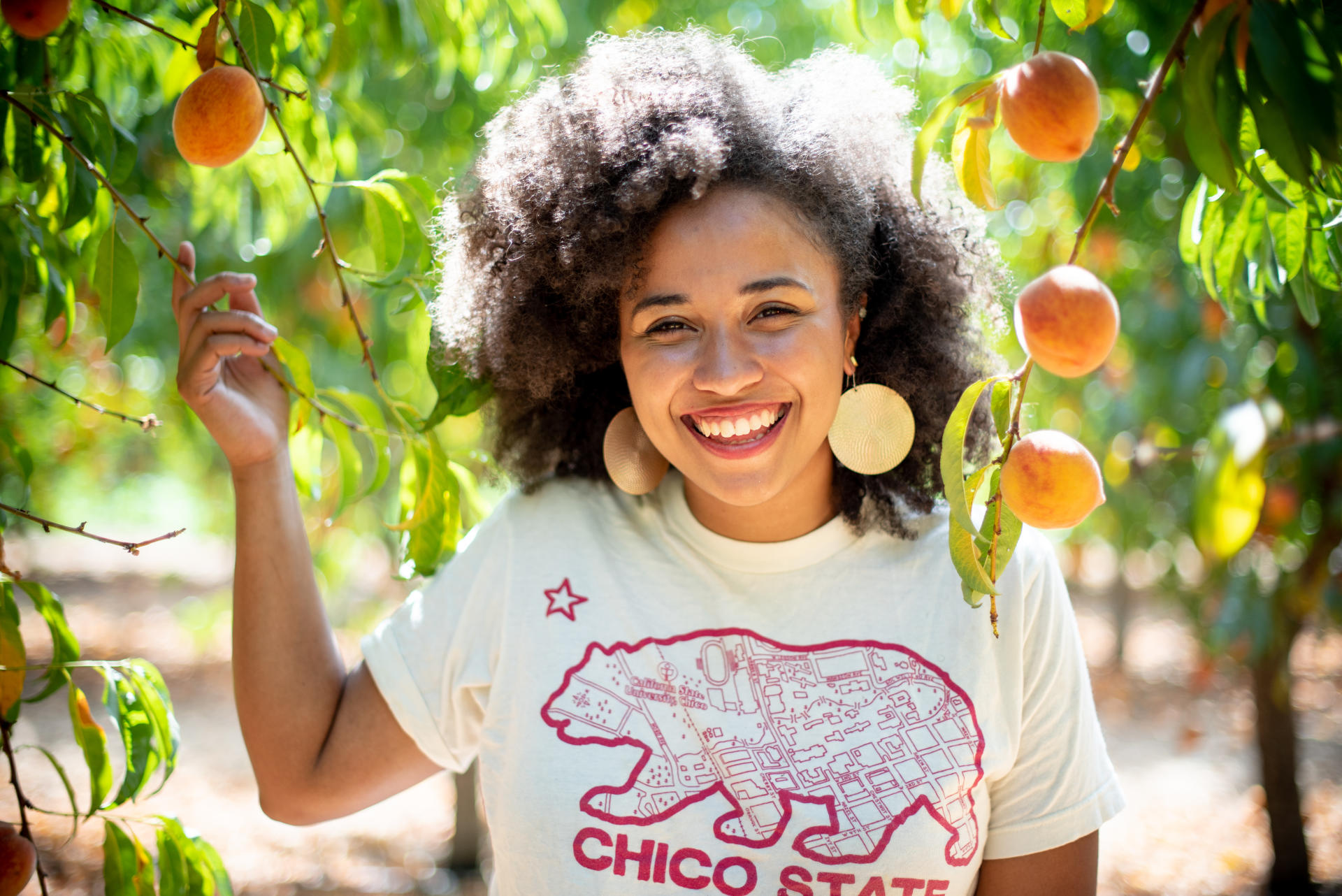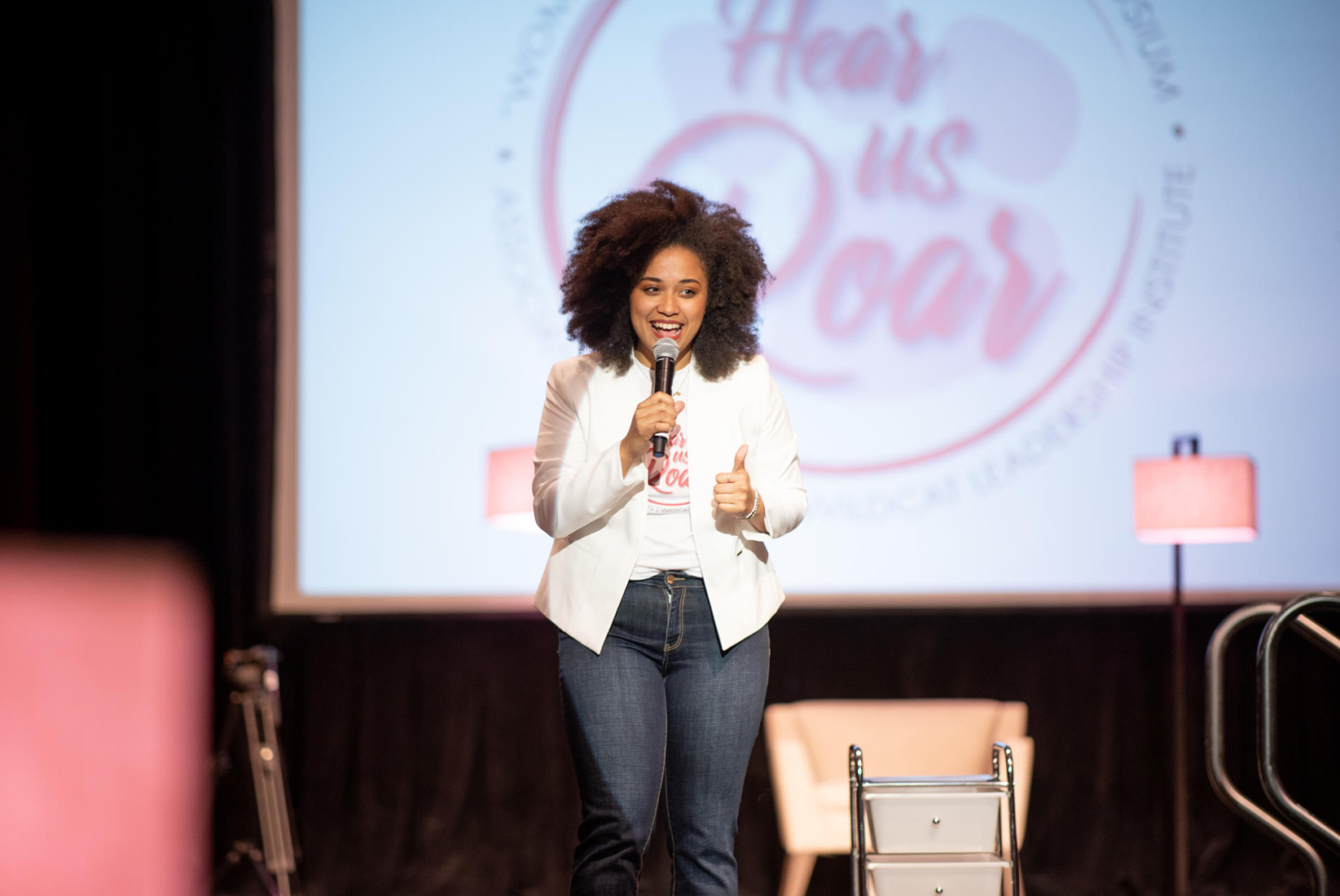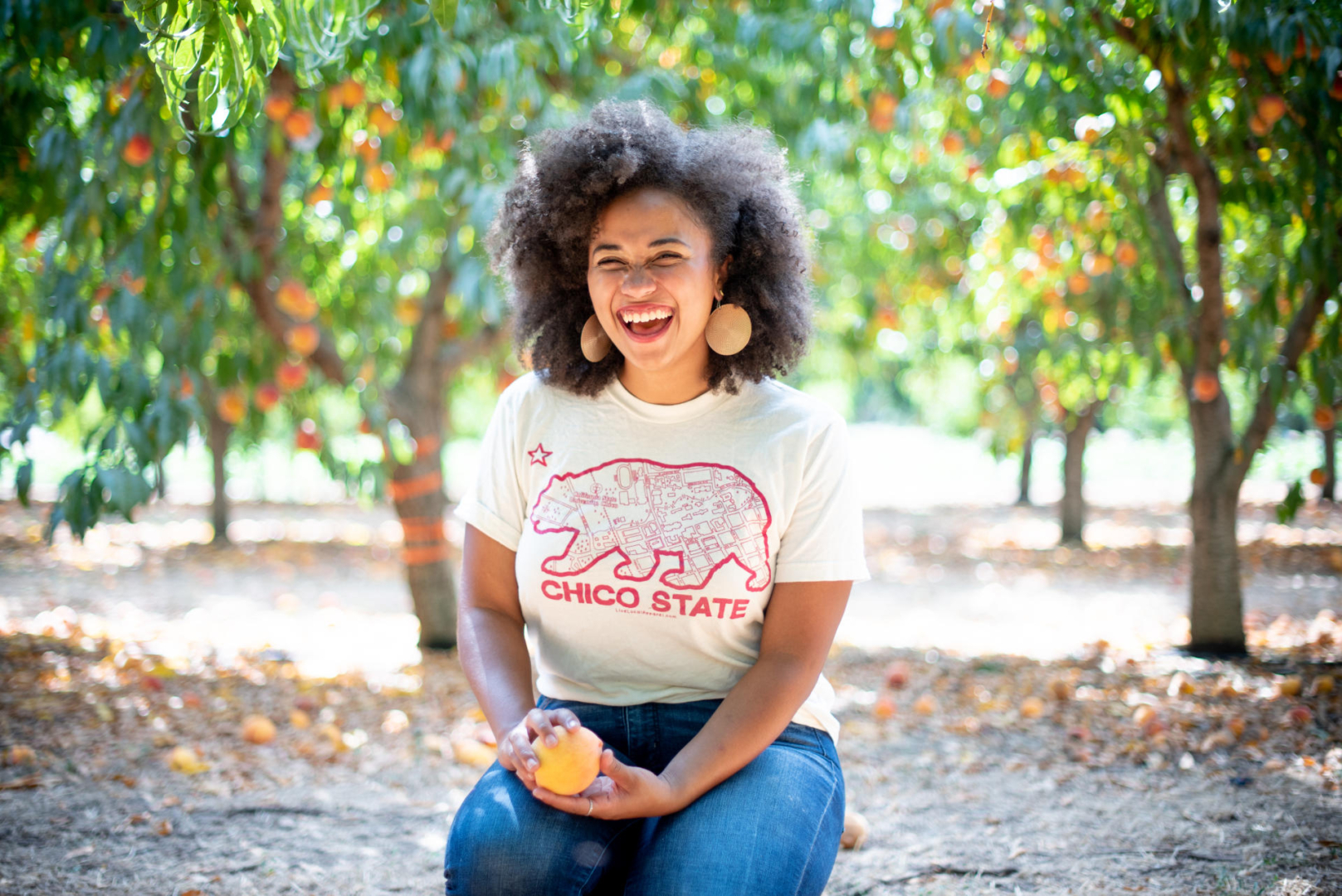Ag Education Major Earns Statewide Honors for Outstanding Achievement

AS President Breanna Holbert is photographed in the peach orchards at the University Farm on Friday, August 14, 2020 in Chico, Calif. (Jessica Bartlett/University Photographer/CSU Chico)
When Breanna Holbert first set foot on Chico State’s University Farm, she was determined it wouldn’t be the last.
As a wide-eyed freshman at Tokay High School, Holbert was one of thousands of Future Farmers of America (FFA) students from all over California attending Field Day at the sprawling 800-acre teaching and learning center. Holbert already had visions of teaching agricultural education, and inside the University Farm Pavilion, she sensed the camaraderie and felt the gravity of connection—and knew she found her home.
“It was like family, and I wanted to be a part of that,” she said.
Today, Holbert serves as a peer advisor in the College of Agriculture’s Student Success Office, while also performing her duties as Associated Students (AS) president. The agricultural education major’s ability to connect with her fellow students has helped her stand out among her peers—while also impressing faculty and staff.
As she begins her senior year, Holbert was honored today with the California State University Trustees’ Award for Outstanding Achievement. As the 2020–21 Trustee Emeritus Ali C. Razi Scholar, she will be acknowledged and celebrated during an online ceremony and reception and also receive a $15,000 scholarship—the highest monetary amount awarded.
“This honor means so much to me because it not only affirms what I am doing as a student at Chico State, but it also is a gift of accessibility for myself and my siblings,” Holbert said, noting the financial support will aid her trajectory into the credential program while also inspiring her siblings to turn to her for advice on securing similar opportunities.
A first-generation student, Holbert was one of three children (including an identical twin sister) growing up in her low-income, single-parent household. Because her mother often worked multiple jobs, Holbert embraced leadership early in life, assuming the role of family caretaker, cooking and cleaning for her siblings, and ensuring they got to school on time.
“I was always there to keep the ship afloat,” she said. “I felt that responsibility and that sense of nurture for my siblings that I didn’t necessarily get from my family.”

What Holbert lacked in guidance at home, she received in school—a major reason her sights are set on teaching.
“My whole life, teachers have supported me, whether it’s financially, taking money out of their own pocket to pay for a trip for me, pulling me aside and asking ‘how are you?’ or taking a piece of my work and saying, ‘I know you can do better than this,’” she said. “It showed me what the love of a teacher could do for somebody else—I just want that for other people, too.”
Holbert immersed herself in agriculture throughout high school and with FFA, she chose to attend Chico State in fall 2016—a journey she calls “unconventional, yet beautiful.”
As a woman who identifies as Black and Latinx in an industry historically led by white males, she understands that very few people in agriculture look like her or share her story of intersectional identity. Never was this more apparent than when she was elected National FFA Organization’s president during the 2017–18 academic year—becoming the first woman of color to lead the national organization in its 90-plus years.
“The opportunity representing students of color in agriculture as the president of the world’s largest youth organization was beautiful,” she said.
During a one-year sabbatical from her studies, Holbert traveled the country speaking in front of thousands of people in politically divergent states, taking meetings with corporate CEOs, and connecting with the nation’s agriculture students about the industry’s future—while at the same time representing it.
When she returned to campus, Holbert immediately embraced new leadership opportunities among her Wildcat peers. Working in the college’s Student Success Office as a peer advisor, Holbert helps students with advising or selecting classes, listens to their worries and concerns, and connects with them in myriad ways—while also taking the opportunity to learn more about herself. She served as AS director of legislative affairs for 2019–20 and was elected AS President for this academic year.
“Just listening to all the different perspectives and experiences of students, my age or younger, who are going through these things, it helps me to be able to talk about it myself and what I’m going through,” she said. “The experience has been so awesome and thoughtful.”

Ashley Person said that during her time as the college’s student success coordinator, she hadn’t typically hired lower-division students as mentors. But right away she noticed Holbert, who started as a sophomore, would be an asset.
“She’s an exceptional peer advisor,” Person said. “She has all the attributes of what you want in a student you work with, in terms of timeliness, courtesy, and professionalism, but she also manages to be super relatable to other students—and that’s not easy.”
Those around her take note of what Holbert says.
“She has that ability to be tenacious and push limits and ask for more from the people around her in a way that makes you want to join her,” Person said. “I think that’s a big part of her success.”
Ultimately, Holbert aspires to be a change agent. With so much experience to pull from—and much more to come—she sees herself one day pursuing a career in politics, focusing on educational policy and working to establish a more inclusive and equitable curriculum.
“I think our education system is so broken,” she said. “I see it in the curriculum and the standards that we have to teach students, and how we’re not celebrating their culture, but instead putting them in this predominantly white narrative. Students are slowly fading away from their culture until they come to college, and then they realize, ‘Whoa, I didn’t know this.’”
And through that change, she hopes to connect directly with marginalized students who share her passion for agriculture—and to remind them there’s a place for them.
“I want to be able to go to those faces and talk about agriculture as a woman of color,” she said. “And I want students to see that, here are the opportunities they’re able to have in agriculture.”


